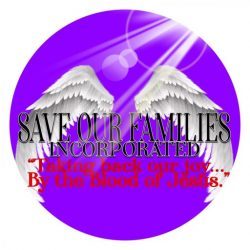NIV Dictionary Of The Bible
❤️Messiah❤️
MESSIAH. A word that represents the Hebrew mäshiah, the Aramaic meshihä’, and the Greek Messias. “Messias” (John
1:41, 4:25 KJV) is a transcription of the Greek word. The basic meaning of the
word is
anointed one. ” “Christ” is the English form of the Greek Christos, which means “anointed.” The Septuagint uses Christos 40 times to translate the Hebrew mäshiah. In ancient Israel both persons and things consecrated to sacred purposes were anointed by having oil poured over them. In the OT the primary significance of the expression “the Lord’s anointed” refers to the earthly king who is reigning over the Lord’s people. The Israelites did not think of crowning a king but of anointing him when he was enthroned. The fact that he was anointed was the essential characteristic of the ruler.
Isaiah uses the term only of Cyrus (Isa
45:1). Later the expression
“Son of
David” was a synonym for “Messiah” (Matt 21:9; Mark 10:47-48). Except for Daniel 9:25-26 the title “‘Messiah’ as a reference to Israel’s eschatological king does not occur in the OT. It appears in this sense later in the NT and in the literature of Judaism.
In the NT the
Messiah is
“the Christ,” the Greek
equivalent of the Hebrew mäshiah.
Closely related to the eschatological character of the Messiah is his political significance. He will destroy the world powers in an act of judgment, deliver Israel from her enemies, and restore her as a nation. The Messiah is the king of this future kingdom to whose political and religious domination the other nations will yield. His mission is the redemption of Israel and his dominion is universal. This is the clear picture of the Messiah in practically all of the OT passages that refer to him. The Messiah will put an end to war, for he is the Prince of Peace, and he will rule righteously over his people. He himself is righteous and is called the righteous Messiah or the Messiah of righteousness (Jer 23:6).
Through the Messiah the kingdom of the end time will be established, the kingdom of God on earth, the restoration of Israel.
As the Messiah was present from the first in the creation so he is also present as the central figure of the last events. He is declared to be the firstborn of creation and also the end and goal of creation (John 1:1; Col 1:15-17; Rev 3:14).
The essential features of the OT picture of the Messiah are in the person of Jesus.
The suffering, dying, and glorified Servant of the Lord of the OT is that same NT Son of Man who will return on the clouds of heaven. The Messiah, as the Son of Man, will suffer, die, and rise again on the third day,
“according to the Scrip-
tures.” But even though Jesus was victorious over death in his resurrection and ascension, he did not yet reign in his full messiahship in his righteous kingdom.
His ultimate victory is revealed to be in the future, and consequently he must come again in power to establish his messianic throne and kingdom.
The Messiah as the Son of Man is a preexistent heavenly being. Long before Abraham, Jesus said, the Son of Man was (John 8:58; cf. 17:5; Col 1:17). The origin of creation is linked with the Messiah Jesus in various Scriptures (1 Cor 8:6;
2 Cor 8:9; Col 1:15-17). It is also as preexistent that Jesus is called “elect?
(! Peter 2:6; NIV “chosen”*). The Messiah is the Son of Man in a unique sense (John 1:1; Rom 1:4). Jesus was asked to declare if he was ‘
“the Messiah, the Son
of God”
(Matt 26:63-64; Mark 14:61;
Luke 22:67-70), and his claim is clear.

